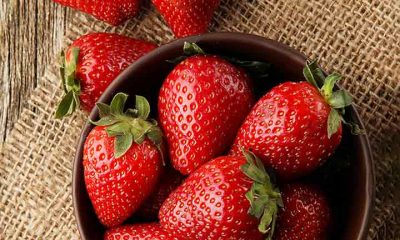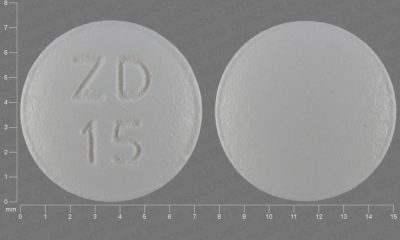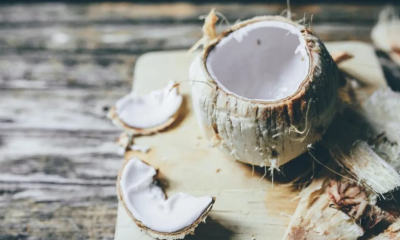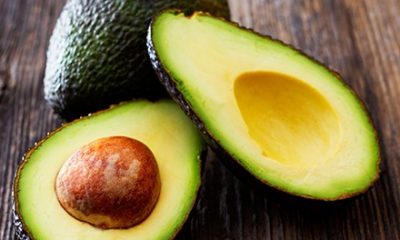Health
5 Health benefits of Salmon
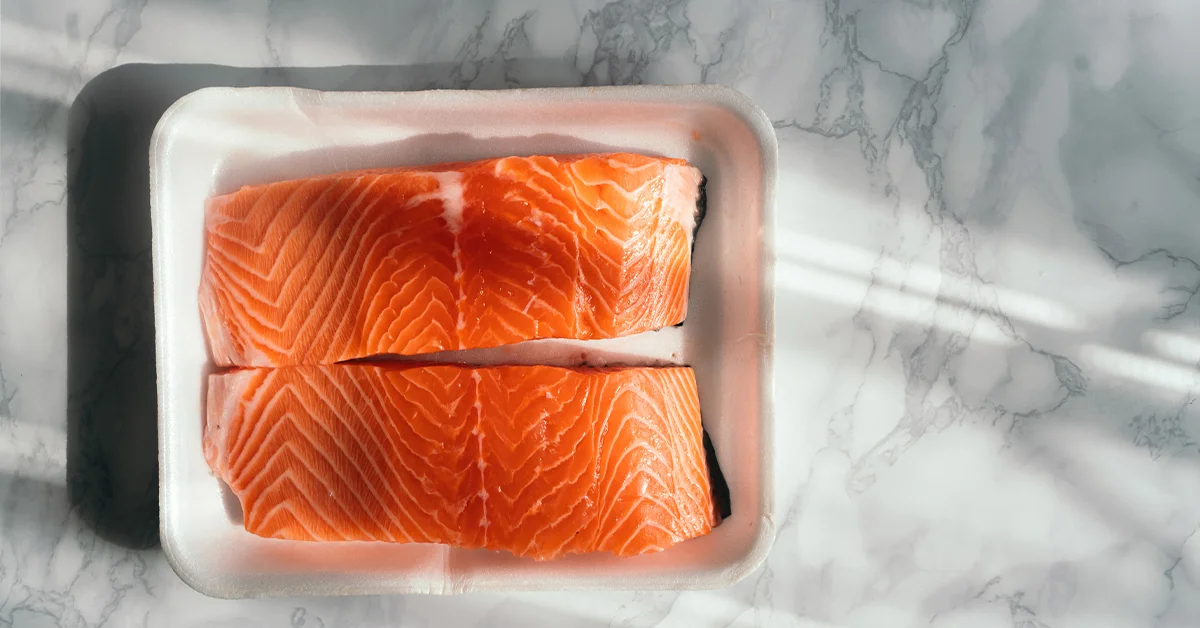
Discover the 5 shocking health benefits of Salmon.
Salmon are saltwater fish that are mostly native to the waters of Alaska, the Pacific Northwest, and California.
They swim through estuaries and upstream in freshwater to breed, making them relatively unique among commercially harvested fish.
Salmon is great for a variety of preparations, including poaching, grilling, roasting, broiling, smoking, or pickling. You’ll find them in salads and tartar, burgers, and pasta dishes.
Salmon could be the fish for people who say they don’t like fish. It doesn’t taste like any other fish, that’s for sure.
It’s rich, it’s meaty, and it’s satisfying enough to turn people away from their chicken, pork, and pork grind.
Salmon is rich in protein and essential fatty acids for health. It is also an excellent source of vitamins such as B12 and B6 and niacin, as well as minerals such as selenium, magnesium, and significant amounts of calcium.
Today we will learn more about the health properties of salmon.
Give your body and skin a fabulous treatment just by consuming this food twice a week that will also lift your spirits.
This superfood is one of the fish with less saturated fat and more content of omega-3 fatty acids, which has the main benefit of helping with heart health.
This and other blue fish are highly recommended for people suffering from diabetes or high blood pressure.
But if you have any of these diseases you need to consult with your doctor to find out what are the appropriate portions for your type of diet
Salmon characteristics
Salmon is the common name for several species in the Salmonidae family, including trout, gravel fish, and whitefish; These are native to tributaries of the North Atlantic Ocean, and the Pacific Ocean.
Many species of salmon have been introduced to non-native environments such as the Great Lakes of North America, and the Patagonia of Argentina, in South America. Salmon fish is intensively farmed today, in many parts of the world.
Generally, salmon are anadromous, this means that they are born in freshwater, then migrate to the ocean, and then return to freshwater when it is time to reproduce.
However, there are populations of several species that are limited to freshwater throughout their lives, while other species of salmon exhibit anadromous life strategies.
Ichthyology experts assert that the fish return to the exact place where they were born to spawn; as follow-up studies have shown this to be mostly true, but a portion of a returning school of salmon may drift and spawn in different freshwater systems.
The percentage of deviation depends on the species of salmon since it has been shown that the behavior of these salmon fish depends on the olfactory memory that they have.
Salmon fish and trout
Salmon fish is pink in color, and have spots on their fins and back; when they are mature, their body is long and slender, and unlike the freshwater pufferfish, the females are larger than the male.
Generally, the largest salmon are Atlantic salmon and Chinook salmon, while the smallest is pink. Its approximate weight in adulthood is almost two kilograms.
Salmon fish and trout are similar in appearance, only differing in their body color patterns; since both trout and salmon have a small fin on their back called an adipose fin, and they are the only fish that have this fin.
This fin is of no value to other fish, since what it contains is a bit of fat. It has eight fins altogether, and the tail fin is the largest, helping to move the salmon.
Its tail is extremely flexible and powerful, which is why this fish is capable of traveling twenty thousand kilometers in the ocean and achieving speeds of up to fifty kilometers per hour.
You can also jump more than four meters to climb waterfalls and obstacles in the water.
The salmon fish also has medium fins that are located on the back and the belly, which are called the dorsal and anal fin; and prevent the fish from tipping over or rolling over.
The pair of pelvic fins are located on the belly, while the pair of pectoral fins are located on the underside of the fish, very close to the head; both sets of fins serve the salmon fish to prevent it from falling forward.
Salmon are silverfish while in the ocean, but during the breeding season, there is a change in coloration that varies from species to species. Males generally develop hooked jaws.
The changes are most striking in male Pacific salmon. Adults run upstream in spring and fall and do not take food, although they will attack with fishing lures.
Nutritional properties
- High content of omega-3 fatty acids that help lower cholesterol levels.
- Provides 11 grams of good fats for every 100 grams of meat.
- It is an unsurpassed source of proteins and minerals such as iodine, magnesium, phosphorus, selenium, iron, and calcium, as well as other vitamins, which help maintain the functioning of the thyroid and the intestine.
- Its high amount of vitamin D is involved in the formation of bone structure and therefore in stronger bones.
- Being rich in omega 3, it fights high blood pressure to decrease the likelihood of heart attacks.
- It reduces the risk of cardiac arrhythmia, making your heartbeat less irregular.
- Increases blood circulation so that it does not form clots.
- Its high contribution of vitamin A contributes to the repair of muscle and skin tissues, and to fight infections.
- It’s great for brain and memory health thanks to omega-3 fatty acids.
- Helps cholesterol not stick to the walls of blood vessels.
- Its anti-inflammatory properties fight the acceleration in the skin aging process caused by other foods high in sugar or carbohydrates.
12 . The alpha-linolenic acid present in omega-3s reduces dryness and flaccidity so that you can regain the softness of your skin.
- It promotes the absorption of vitamins such as C and E, which contribute to the cellular regeneration of skin, muscles, and hair.
- It is a great ally to fight skin problems such as rosacea, psoriasis and prevent skin cancer.
- Salmon is capable of reducing the effects of the sun’s rays on your skin.
The best way to eat it
It is best to steam, boil, cook or bake it. When you fry or grill it, it loses several of its properties, but you can add a few sprigs of rosemary to reduce this effect.
Types of salmon.
a.- Atlantic salmon:
Chinook salmon is also known in the United States as king salmon or black salmon; They are the largest of all the Pacific Ocean salmon, weighing more than fourteen pounds, and range north into the central Canadian Arctic, and south as the coast of central California.
b.- Coho salmon:
Chum salmon is known as dog, or calico salmon in some parts of the United States, and is a species that has the widest geographic range in the Pacific Ocean; This is found in California’s Sacramento River, in the Sea of Japan, in the northwestern Pacific, and the Lena River in Siberia.
Coho salmon, also known as silver salmon, are found along the coastal waters of Alaska and British Columbia, and as far south as Monterey Bay in California.
c.- Masu’s salmon:
It is found only in the western Pacific Ocean in Japan, Korea, and Russia. Likewise, pink salmon, better known as humps, are found in northern California and Korea, throughout the northern Pacific, and from the Mackenzie River to the Lena River in Siberia.
d.- Red salmon:
Sockeye salmon are found south of the Klamath River in California, in the eastern Pacific Ocean, and north of the island of Hokkaido in Japan in the western Pacific and as far north as Bathurst’s entrance to the Canadian Arctic in the east and the Anadyr river of Siberia in the west.
Although most adult Pacific salmon feed on small fish, shrimp, and glass squid, sockeye salmon feed by filtering their food through gill branches.
5 wonderful health benefits of salmon
Several studies have shown that eating salmon can lead to a lower incidence of depression and, in turn, reduce temper and improve mood.
Salmon is a rich food and also very nutritious; It is listed in the world as one of the healthiest foods, rich in protein and essential fatty acids for health.
In the same way, salmon is a great source of vitamins such as B12, B6, niacin, and minerals such as selenium, magnesium, and abundant amounts of calcium. We will tell you about the great health benefits of salmon:
1.- For the heart
Consuming salmon regularly helps keep the heart very healthy, favors the circulatory system due to its omega-3 content, which helps repair soft tissues, and lower and control blood pressure, thus preventing strokes
It also prevents the hardening of the arteries, which prevents heart attacks. The vast majority of fish have these gifts, but salmon is the most complete of all varieties.
2.- To end the inflammation
Salmon being a rich source of omega-3 fatty acids, it is a powerful food capable of ending joint pain, as it helps to produce cartilage tissue and reduce inflammation of the body when these are caused by heart disease. diabetes or arthritis.
A very powerful component such as bioactive protein molecules is those that help prevent inflammation and make insulin effective.
3.- For the cognitive system
On the other hand, omega-3 is an important aid in the prevention of cognitive problems, whose condition or progress can be avoided and controlled with the consumption of this important substance that is found in large quantities in salmon.
One of the conditions that cause cognitive degeneration is Alzheimer’s, which is very common in people over sixty years of age.
In addition, it has been proven that people who consume salmon with some frequency are less likely to suffer episodes of depression.
There have also been some reports on studies showing that frequent consumption of salmon reduces temper and increases and improves mood, especially in young people.
4.- For eye health
To the extent that salmon is consumed, the risk of suffering from different eye diseases is greatly reduced, among which is macular degeneration or dry eye syndrome; You can consume about five or six servings per week to reap its benefits.
5.- Against cancer
This is a very aggressive disease and is also well known throughout the world. Thanks to the consumption of salmon, its appearance within our body could be greatly reduced.
The properties of salmon and the action in the body help prevent leukemia, and substances such as selenium contained in abundance in salmon work as powerful antioxidants which help in a very effective way to prevent cancer.
In this way we can realize the benefits that the consumption of salmon can bring to our body, in addition to being a delicious fish, it is highly beneficial for our health and therefore for our good quality of li
Health
Serious side effects of topamax
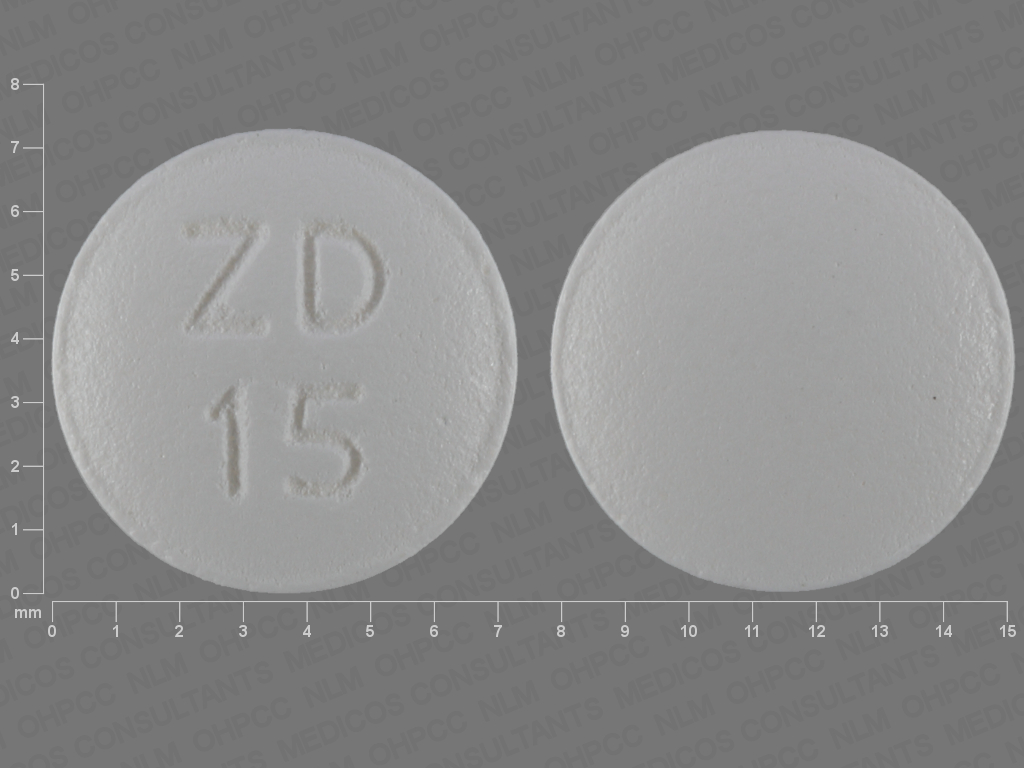
Discover the serious side effects of Topamax
One of the medicines used to treat seizures in adults is Topamax, the active substance of which is topiramate.
The taking of this drug should always be done under medical prescription and with the corresponding prescription, as well as it is essential to follow the instructions regarding the dosage indicated by the specialist.
To learn more about Topamax along with its indications, use, and side effects, keep reading this article.
What is Topamax for
Topamax is a topiramate-based drug used to treat seizures in adults and children older than 2 years.
This anticonvulsant is administered in the event of partial seizures with or without secondary generalization or primary generalized tonic-clonic seizures and for the treatment of seizures associated with Lennox-Gastaut Syndrome.
It should be noted that this drug is also used to prevent migraine, although not as a treatment to alleviate them.
Warnings about Topamax
Taking Topamax should always be prescribed by a doctor and it will be necessary to notify your doctor beforehand in case of:
•glaucoma or other eye problems
•kidney disease, kidney stones, or dialysis
•breathing problems
•mood problems, depression, or suicidal thoughts or attempts
•liver disease
•osteoporosis, osteomalacia
•growth disorders
•be taking lithium
•suffer from diarrhea
•being lactose or sucrose intolerant
•It is also not recommended to take Topamax by pregnant or lactating women, as this drug can cause fetal harm or be excreted through breast milk.
Likewise, you should never drink alcohol while you are being treated with Topamax, as the side effects can be very serious.
Side effects of Topamax
Different side effects derived from taking Topamax have been described, so you should go or notify your doctor quickly if you feel any of the symptoms described below:
•Allergic reactions such as difficulty breathing, hives, swelling of the face, tongue, lips, or throat.
•Sudden changes in mood or behavior
•Anxiety and/or panic attacks
•Difficulty to sleep
•Irritation, agitation, and hyperactivity (mentally or physically)
•Depression or thoughts of killing yourself or hurting yourself
•Numbness or tingling in the extremities
•Headache, tiredness, dizziness, or drowsiness
•Changes in taste
•Nausea, diarrhea, indigestion, stomach pain, loss of appetite or weight
•Quick back and forth movements in your eyes.
Likewise, it should be noted that these are not only the adverse effects that Topamax can cause, so you should consult your doctor in case of any other type of alteration or symptom.
This article is merely informative, we do not have the power to prescribe any medical treatment or make any type of diagnosis.
We invite you to go to a doctor in the case of presenting any type of condition or discomfort.
Health
18 benefits of peanuts during pregnancy
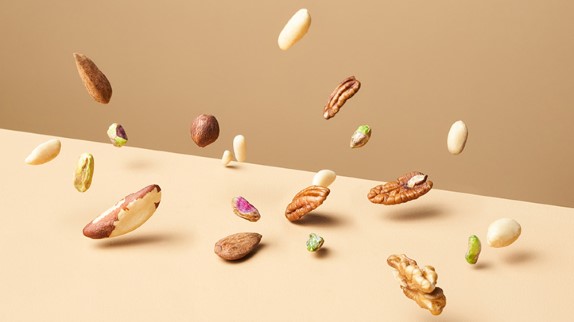
Discover the 18 benefits of peanuts during pregnancy.
Peanuts during pregnancy can be very beneficial for future mothers and their fetuses. Peanuts are not only delicious, but they are also packed with vitamins, minerals, and other natural compounds that are great for pregnancy, which you can’t miss.
You must remember that pregnancy is a wonderful gift that only women can experience.
Being pregnant is like a noble job ordained directly by God for women, something that men could not do on their own. During pregnancy, the fetus magically grows inside the woman’s womb until the baby is born into the world.
To ensure the optimal development of the fetus before it is born, mothers must consume highly nutritious food because it is the only way the fetus can obtain food.
When it comes to the list of foods that mothers should consume during pregnancy, the list will be endless, but you could consider the benefits of peanuts during pregnancy, as peanuts
Peanut Nutritional Values
Peanuts are considered a healthy snack. However, this does not mean that you can consume without knowing the nutrients that peanuts contain.
By knowing the nutrients contained in peanuts, you can measure the number of peanuts needed during pregnancy, since surely the needs of each one are different from those of others.
Serving Size: 100 grams
Energy 567 kcal – 29%.
Carbohydrates 16.13 g – 12%.
Protein 25.8g – 46%.
Total fat 49.24 g – 165%.
Dietary fiber 8.5g – 22%.
Folate 240 µg – 60%.
Niacin 12mg – 75%.
Pantothenic acid 1,767 mg – 35%.
Pyridoxine 0.348 mg – 27%.
Riboflavin 0.135 mg – 10%.
Thiamine 0.64 mg – 53%.
Vitamin E 8.33mg – 55%.
Calcium 92mg – 9%.
Copper 1,144 mg – 127%.
Iron 4.58mg – 57%.
Magnesium 168mg – 42%.
Manganese 1,934 mg – 84%.
Phosphorus 76 mg – 54%.
Selenium 7.2 µg – 13%.
Zinc 3.27mg – 30%.
Sodium 18mg
Potassium 705mg – 15%.
From the table above, surely you have a general idea of the number of peanuts you could consume daily.
The key is to consume it in moderation, but sometimes it is necessary to ensure that the daily intake of a certain nutrient can be met to ensure optimal development of the fetus.
18 Benefits of Peanut During Pregnancy
Below are the benefits of peanuts during pregnancy that will give you reasons why you should add this healthy and delicious snack to your daily diet.
1.- Excellent source of folate
During pregnancy it is highly recommended to consume foods rich in folate and peanuts are one of them.
For every 100 grams of peanuts, approximately 60% of the daily intake of folate could be covered. It is common knowledge that folate is essential for fetal development, especially early in the trimester.
2.- Natural source of vegetable protein
Protein is essential for a mother during pregnancy and 100 grams of peanuts contains enough protein to meet the daily intake.
3.- Prevents birth defects
The birth defect can occur when the development of the fetus is disturbed or when there are insufficient nutrients to support development.
Peanuts are packed with vitamins and minerals that are great for pregnancy like folate to support optimal growth and minerals like iron and calcium to make sure there is enough red blood cell stock.
4.- Promotes optimal brain development
It is great food for the brain. During pregnancy, the fetus receives nourishment from the mother, and the folate consumed by the mother is not only beneficial to the mother, but also the developing brain of the fetus.
If you want to have a healthy and smart baby, eat peanuts during pregnancy.
5.- Source of calories for the mother
Each mother’s calorie needs may be different, but calories are essential for increased energy.
During pregnancy, a mother may suffer from fatigue and get tired easily. To help boost energy, peanuts can help restore it.
6.- Contains healthy fats
Not all fats are bad and peanuts do contain some healthy fats that are great for the mother during pregnancy.
Healthy fats are great for promoting a healthy heart, as mothers are at high risk for high blood pressure during pregnancy.
7.- Reduces the risk of allergic diseases
Recent studies have indicated that mothers who consume peanuts during pregnancy may reduce the risk of allergic diseases.
Not only allergic foods such as peanuts but also other types of allergies such as asthma.
8.- Helps control blood pressure
High blood pressure during pregnancy could be fatal for both the mother and the fetus. That is why it is very important to always keep your blood pressure under control.
To help control blood pressure, adding peanuts to your daily diet is highly recommended because basically, peanuts are great for your heart.
9.- Prevents gestational diabetes
On the table, it was seen that peanuts are quite rich in manganese. This mineral has an important role in regulating blood sugar levels during pregnancy to prevent gestational diabetes. Additionally, manganese also promotes optimal calcium absorption.
10.- Fight depression
During pregnancy, the mother is at risk of stress and depression. Well, some studies have shown that mothers who eat peanuts are much happier than those who don’t. So whenever she feels stressed, she snacks on peanuts.
11.- Decreases the risk of weight gain
Obesity during pregnancy is never good for both mother and baby. That’s why managing your weight is so important peanuts, while they do contain fat and calories, fats are healthy fats and packed with other nutrients that may help you control calories.
12.- Promotes skin health during pregnancy
One of the problems that every mother has to deal with during pregnancy is the skin problem.
Although they are prohibited from using cosmetics due to their chemical content, they could manage their skin problem just by consuming peanuts. Vitamin E and antioxidants will help prevent all skin conditions.
13.- Source of vitamin E
Vitamin E is the reason why a pregnant mother should look good. Vitamin E promotes skin health and makes sure that there is no such skin condition that the mother has to face.
Therefore, they could focus on her pregnancy instead of giving birth to a healthy baby.
14.- Great source of omega 3 fatty acids
If you think that fish is not your friend during pregnancy but you know that you need a great source of omega 3 fatty acids, you could replace fish with peanuts because they contain quite high healthy fats.
15.- Excellent source of vitamin B complex
In the table above you can see the high content of vitamin B found in peanuts per 100 grams. Most of them could satisfy almost half of the daily intake of vitamin B.
16.- Contains powerful antioxidants
Antioxidants are not only a solution against cancer, but during pregnancy, antioxidants could help the mother to maintain her immune system so that she doesn’t get sick easily.
17.- Rich in minerals
Looking for a quick fix to meet your daily mineral intake during pregnancy, peanuts are the answer.
You could see the nutritional table above about the value of minerals found in peanuts. 100 grams of peanuts are capable of satisfying half of the daily intake of minerals that your body needs.
18.- Super healthy sandwich
Well, during pregnancy you need to make sure that you consume enough food to ensure the optimal development of the fetus. Add peanuts to your daily diet because they are the super healthy snack that everyone loves.
Peanut Precautions
Peanuts may be packed with vitamins, minerals, and other natural compounds that are beneficial during pregnancy.
The list of benefits of peanuts during pregnancy mentioned above are scientifically proven facts. However, there are still some precautions about peanuts that you should be aware of as well.
Allergic reaction is one of the common things that can happen when peanuts are consumed. If a mother has ever been diagnosed as allergic to peanuts, she should not eat them.
Some studies also claim, that too many peanuts consumed during pregnancy could increase the risk of allergic reaction to the baby when they were born. Therefore, it is better to consume it in moderate amounts.
Peanut butter can be delicious, but it is recommended to consume it in its real form, as peanut butter has been through some processing and care must be taken with the amount of refined sugar in peanut butter.
Be careful with salty peanut snacks too because they can be delicious to eat during pregnancy, but salt contains sodium that could increase your blood pressure level. High blood pressure during pregnancy can be fatal.
Peanuts are healthy snacks that mothers can add to their daily diet, especially in the early stages of pregnancy when morning sickness is at its worst.
Just by eating peanuts as a snack, you could at least ensure that the baby inside your womb is still getting the nutrients that she needs to develop.
However, you need to keep in mind the precautions mentioned above if you want to reap the full benefits of peanuts during pregnancy and not the other way around.
Health
10 shocking health benefits of Arugula
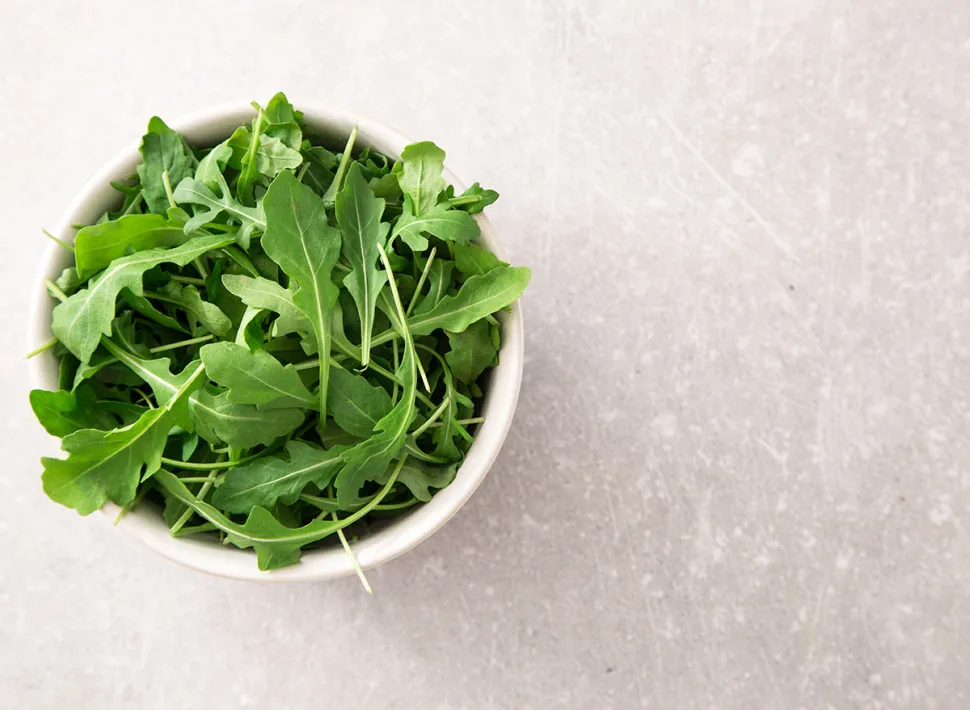
Table of Contents
-

 Food1 year ago
Food1 year ago10 + Benefits of carrot juice and side effects
-

 Benefits4 months ago
Benefits4 months agoThe Benefits of Joining Gym Lumolog – Improve Your Fitness & Health
-

 Health1 year ago
Health1 year ago50 Super Healthy (And Very Often Cheap) Foods
-

 Health1 year ago
Health1 year ago5 Shocking health benefits of kinkeliba and side effects
-

 Food1 year ago
Food1 year ago8 shocking benefits of leek juice and side effects
-

 Health1 year ago
Health1 year agoBenefits of guava leaves Sensually
-

 Weight Loss1 year ago
Weight Loss1 year agoChaz Bono weight loss secret
-

 Health1 year ago
Health1 year ago15 Benefits of lipton tea and side effects



